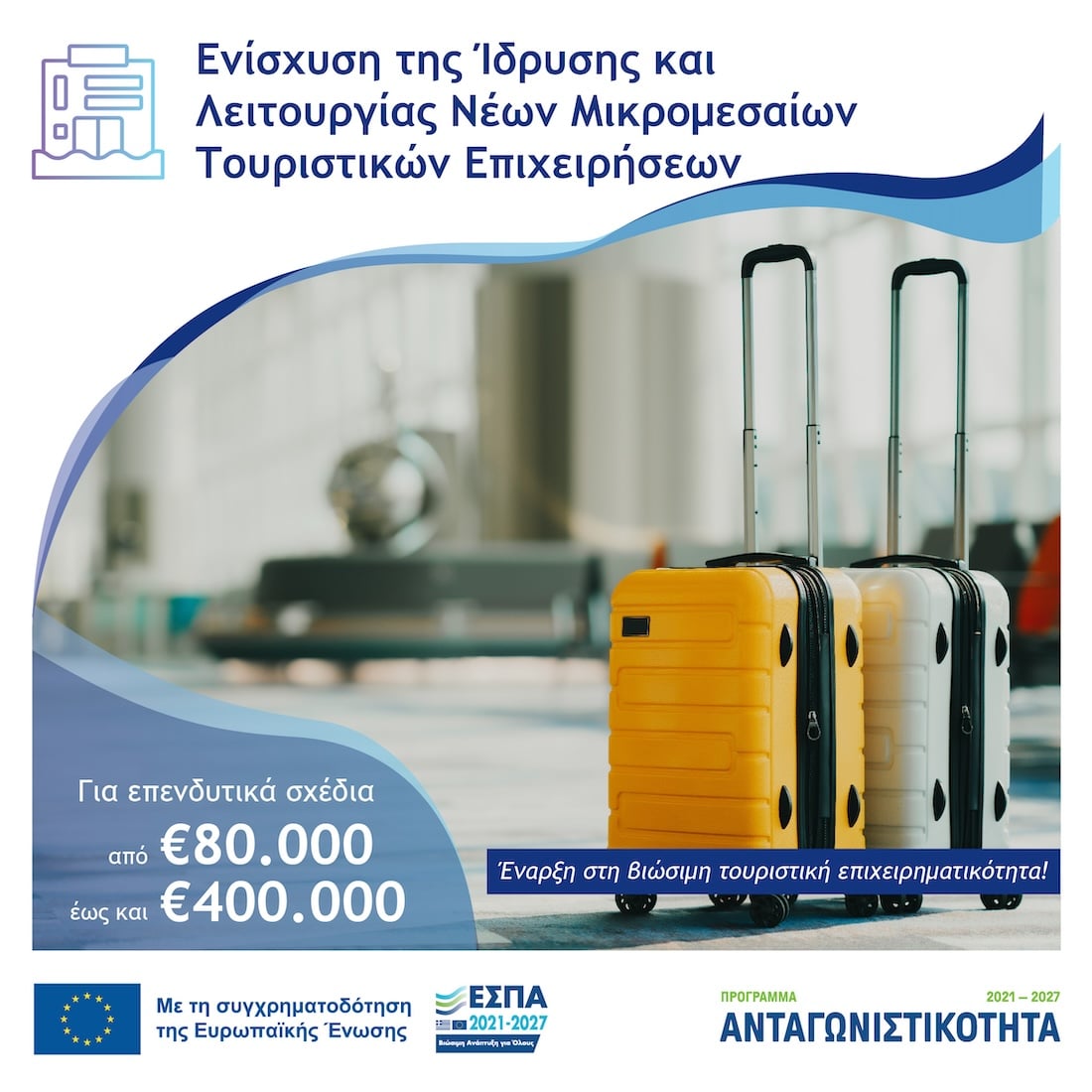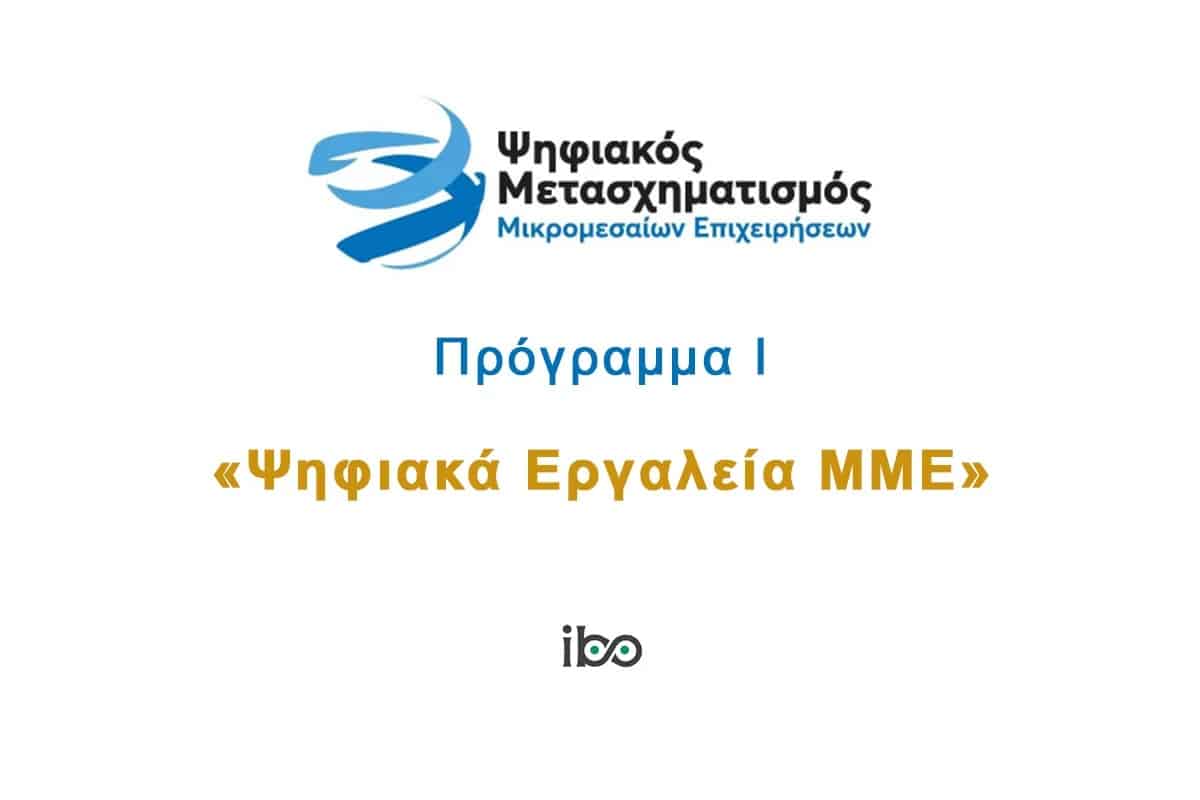
A new chapter opens in vocational training in Greece, with the launch of the new generation of programs that are part of the largest "package" that has ever existed. The programme aims to train 500,000 workers and unemployed people with €1 billion in funding euros from the Recovery Fund.
Όπως ανακοίνωσε στο πλαίσιο συνέντευξης τύπου ο υπουργός Εργασίας και Κοινωνικών Υποθέσεων Κωστής Χατζηδάκης, στις 27 Ιουλίου ανοίγει η πλατφόρμα υποβολής αιτήσεων για το πρώτο από αυτά τα νέου τύπου προγράμματα τουυπουργείου Εργασίας και της Δημόσιας Υπηρεσίας Απασχόλησης (ΔΥΠΑ). Το πρόγραμμα έχει συνολικό προϋπολογισμό 100 mill. euros and aims to develop the digital and green skills of 80,0000 unemployed.
Through this "the unemployed will have the opportunity to pass through the gates of Greek universities for the first time", stressed Mr. Hatzidakis, explaining that out of the 100 million euros, the 50 million euros – which will cover 40,000 unemployed – are allocated to the Centers for Education and Lifelong Learning (KEDIVIM) of the 12 HEIs that have registered and submitted relevant programs The remaining 50 million euros will be allocated to 179 specially licensed Lifelong Learning Centers owned either by private individuals or by social partners, through whose programmes the remaining 40,000 unemployed will be covered.
«The reform of the "Jobs Again" law, which upgrades vocational training in practice, is now taking shape., so that it ceases to be a mere "paper" and emerges as a real tool for the worker and the unemployed for the future, an essential asset for the labor market that is rapidly changing in Greece and internationally", stressed the Minister of Labour and Social Affairs.
He then presented the evidence that proves the skills problem that the country presents and is being attempted to be solved with the new programs:
Only 51% of citizens aged 16-74 have (at least) a basic level of digital skills, while Greece ranks very low in the EU in the Skills Indicators, as is in 5th place from the bottom in skills activation (concerning the transition from education to work) and in last place in skill matching.
"The features of the solution we have adopted are targeted interventions throughout the training chain (trainees, training providers, certification bodies) so that it ceases to have a bonus character and acquires more substantial content," he noted. Hatzidakis which then analysed the six main innovations incorporated in the new programmes.
Six key innovations for the unemployed
1. A part of the payment of providers and beneficiaries - namely 30% - is linked to certification. Only if the beneficiary passes the certification exams will he receive the entire educational allowance, both himself and the training provider he has chosen.
2. The Register of Training Providers is activated, which provides for strict qualitative and quantitative criteria regarding the technical and financial adequacy of the providers.
3. The "range" of training options is substantially widened, with more than 250 different subjects in high demand and an increased focus on digital and "green" skills.
4. It is possible for certification by major international technology companies, following the collaborations of DYPA with Microsoft, Amazon, Google and Cisco.
5. Providers will now be assessed on whether they contribute to the upskilling of beneficiaries and whether they actually lead the beneficiaries into the labour market.
6. Finally, for the first time all training subjects are checked by an independent body in order to ensure the quality of the educational material provided,
The basic steps to apply to the new program
- Unemployed persons who meet at least the following conditions have the right to submit an Application for Participation in the Register of Unemployed Beneficiaries for training through the K.E.DI.VI.M of HEIs:
- They are registered in the Unemployment Register of the D.YP.A. regardless of whether they receive unemployment benefit or not.
- Are over 18 years old
- They are graduates of at least compulsory secondary education.
It is noted that each training program may require additional conditions for the participation of the beneficiaries.
2. The submission of applications for participation of the unemployed in the project is done exclusively electronically. In detail, each interested party in order to be registered in the Beneficiary Register should:
- Fill in the "Application Form" on https://www.voucher.gov.gr special website by entering with TAXISnet codes.
- Attach the following supporting documents to substantiate the information stated in his/her "Application for Participation" and which the beneficiary must submit, after the selection of the program, to the training provider of his/her choice.
- Copy of valid Identity Card/Passport (identification).
- Copy of compulsory secondary education diploma or higher degree
- Solemn Declaration through gov.gr, stating that:
a. Does not attend/ or has not attended any other training program funded by the Recovery & Resilience Fund, under action 16913 "SUB 2: Horizontal Upskilling Programs for targeted population groups"
b. Has not attended a training program in the same subject in the last two (2) years before the publication of this call
- Any additional supporting documents that may be required by the program chosen by the beneficiary (e.g. english language degree, etc.).
Όλα τα παραπάνω δικαιολογητικά, αναρτώνται στην ειδική ιστοσελίδα: https://www.voucher.gov.gr από τον ωφελούμενο.
- To "preserve" his/her application in an electronic medium, as well as the proof of submission of his/her application that states the "Code Number for the Submission of the Application for Participation" (KAYAS) as well as the exact date and time of its submission. The KAYAS code is strictly personal and unique for each application form, is the proof of its submission and is used instead of the name of the applicant in all documents (Registers, tables, training cheque, etc.)
3. After the submission of the application and provided that the basic conditions for participation are met, the Register of Beneficiaries will be established by decision of the Governor of DYPA until August 25th.
- Then the beneficiaries will be able to choose the training program they wish to attend, from the list of training programs offered that appears to the beneficiary according to the educational level (graduate of compulsory education, secondary, tertiary, etc.) as well as the other academic qualifications he has declared.
5. The Training Providers verify the supporting documents of the beneficiaries and if the beneficiaries meet the eligibility conditions, they proceed to the activation of the Training Voucher, through the conclusion of the bilateral contract between the provider and the beneficiary.
If a beneficiary is rejected from joining the program he declared, due to lack of qualifications, is given the opportunity to choose another training program once again. If he is rejected from joining the program he declared, due to non-implementation of the training course or due to the completion of the number of participants, he is given the opportunity to choose another training program for as many times as this happens.
6. The selection of the unemployed and their registration in the Beneficiary Register will be made in order of priority for the submission of the application, provided that the individual conditions for participation in the training program they will choose are met (such as unemployment, educational level, knowledge of a foreign language, where required, etc.) and until the offered positions are exhausted.
7. Each trainee will attend a Theoretical Training program concerning the development of digital and "green" knowledge and skills, with a total duration of up to 200 hours.
8. The implementation of the programs will be carried out with face-to-face training at least 35% of the total hours of each program and with the method of distance education (e-learning), which will include at least 35% synchronous and up to 30% asynchronous distance learning.
9. The daily duration of face-to-face education and modern distance learning may not exceed six (6) hours. Each training programme for the unemployed, lasting up to 200 hours, should be completed within 3 months at the latest.
10. Beneficiaries who have completed the training are obliged to participate in the certification examinations.Each beneficiary who will successfully complete the examinations is granted by the certification body that has chosen "Certificate of knowledge and skills". In case of failure, a "Certificate of participation in the certification examinations" is issued.
11. Each beneficiary who has completed the Vocational Training Program chosen and obtained the Certification of knowledge and skills is entitled to receive an educational allowance amounting to 5 euros / hour of training. So for a 200-hour program it reaches 1,000 euros. The beneficiary is required to complete the training and pass the certification exams in order to receive the full benefit.
In particular, the payment of the educational allowance is made as follows:
After the successful completion of the training and the participation of the beneficiary in the certification examinations (regardless of the result) the beneficiary receives 70% of the eligible amount for the total training hours of the program. If he succeeds in the exams, he is entitled to 100% of the eligible amount.
12. The beneficiary is deleted from the Register and the training cheque to which he is entitled is canceled if the voucher is not activated within the prescribed deadline, if the beneficiary exceeds the permitted limit of absences, if he does not meet the criteria for participation in the action and if he unduly interrupts the training.
List of Greek Universities that provide digital and green skills development programs
- National and Kapodistrian University of Athens
- National Technical University of Athens
- Panteion University of Social and Political Sciences
- Aristotle University of Thessaloniki
- University of Thessaly
- Agricultural University
- Democritus University of Thrace
- University of Western Macedonia
- University of Crete
- Technical University of Crete
- University of the Aegean
- Hellenic Open University
Παραδείγματα Αντικειμένων Κατάρτισης ανέργων στις Ψηφιακές Δεξιότητες
- Increase business productivity using Microsoft 365 and SharePoint, Teams, and Power Platforms
- Learning microscope azur klut artifiko andrelzenda ay futamendal
- Business Intelligence and Data Visualization
- New Technological Skills in Economics and Management: Data Science with R
- Modern computing environments and Python / MatLab applications
- GIS Geographic Information Systems in Theory and Practice using Free Software
- IΤ & Cyber Security: Threat Management and Security Policies
- Web Design: From Designing to Processing Traffic
Παραδείγματα Αντικειμένων Κατάρτισης ανέργων στις «Πράσινες» Δεξιότητες
- Strategic planning and management of resources towards sustainable development
- Action plans, business plans and management of business units in the context of the circular economy
- Environmental Accounting, Finance and Governance
- Upgrading Digital Skills and Adopting Digital Technologies in the Agricultural Sector
- Development of Digital Skills for the Transformation of the Building Sector into a Zero Energy Footprint
- Geoinformatics and digital geospatial technologies in the practice of agriculture and environmental protection
- Viticulture: establishment and management of vineyards
- Smart and sustainable mobility




